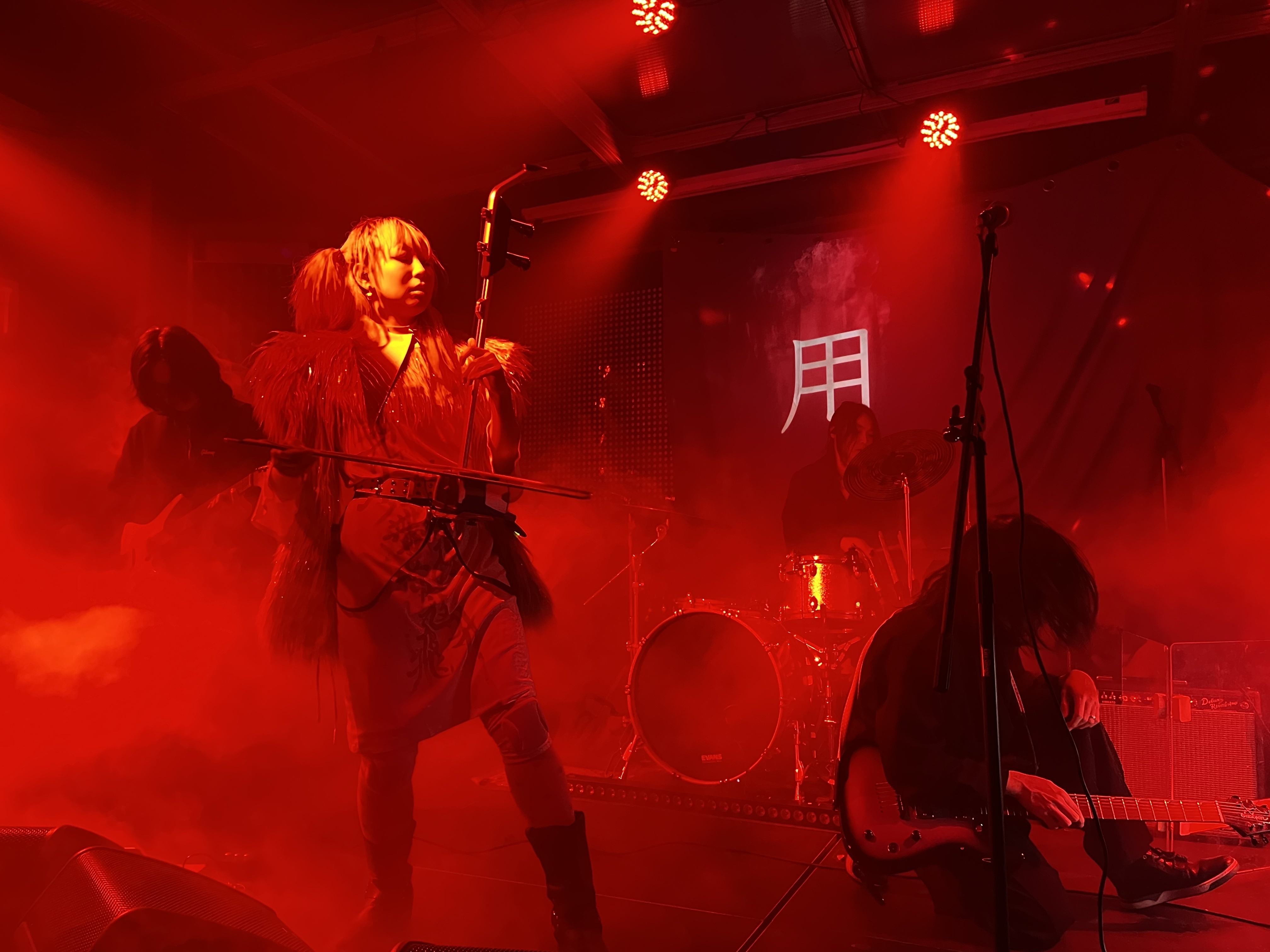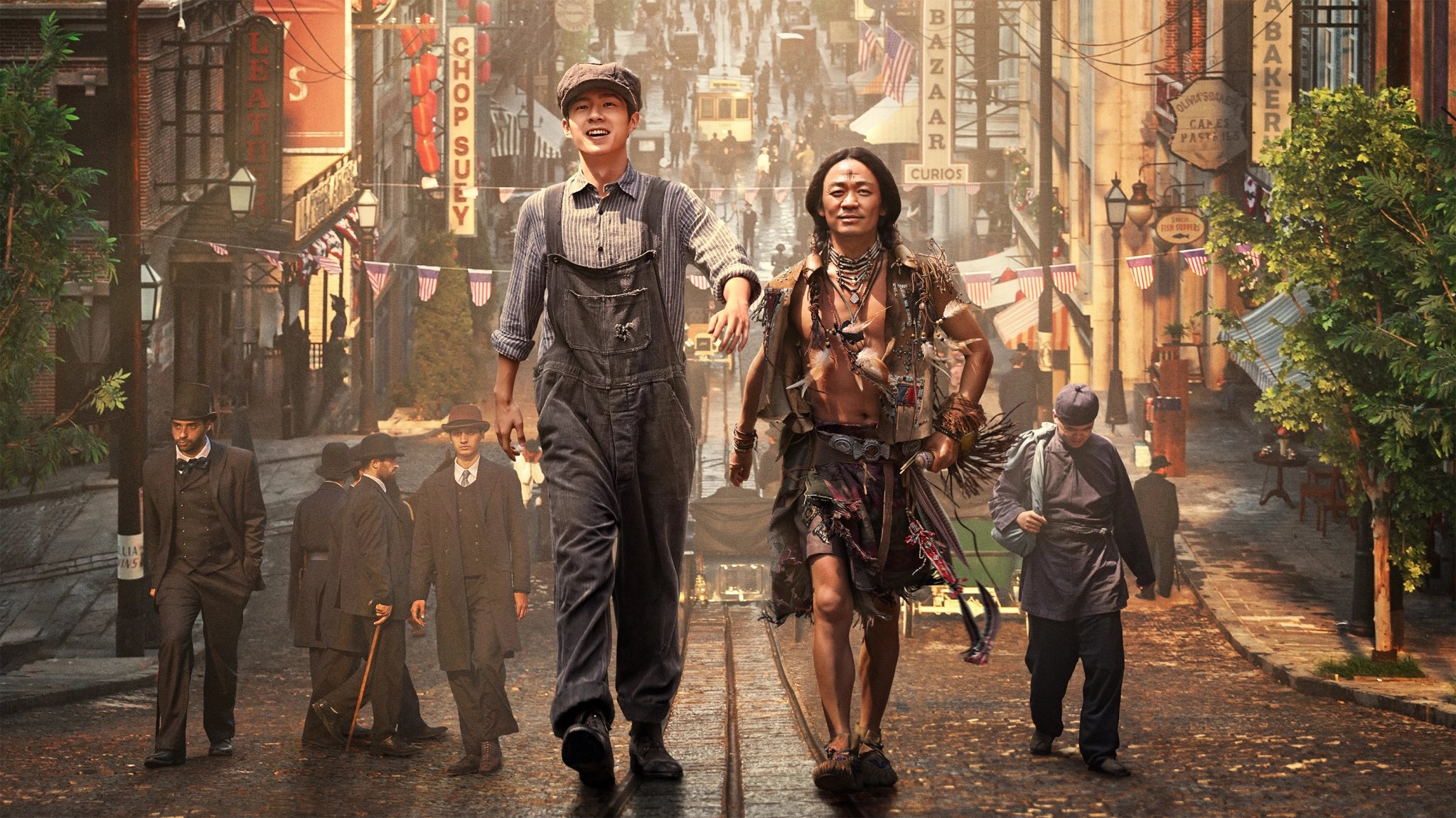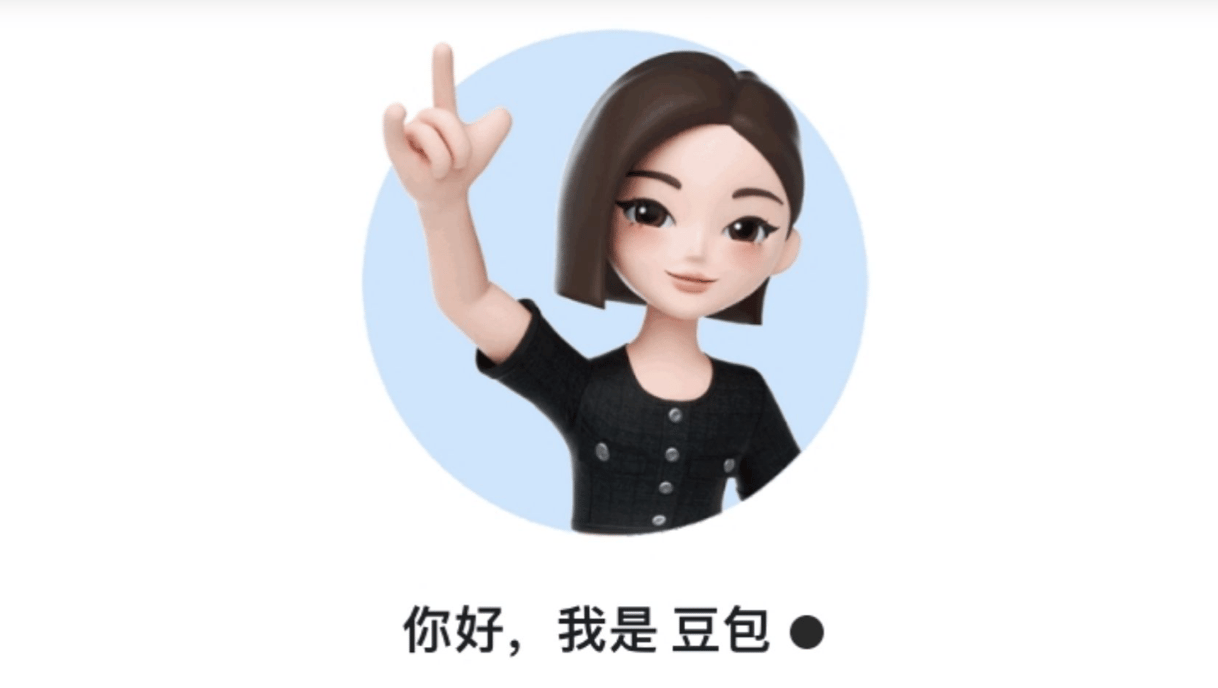‘Nepotism babies’ or ‘nepo babies,’ namely the children of celebrities, have been the talk of the internet in recent months. The term was coined by Gen Zers to describe stars who got a head start in their careers as the result of having famous or affluent parents.
The phenomenon existed long before the term was invented. From Kendall Jenner to Brooklyn Beckham, nepo babies have long been criticized for gaining opportunities because of their family connections instead of their merit.
China too, has its fair share of high-profile nepo babies, or ‘second-generation rich kids (富二代).’ Here are six who frequently appear in the news, sometimes for the wrong reasons.
1. Jaycee Chan aka Fang Zuming (房祖名)
If you ask the average American to name a Chinese celebrity, martial arts superstar Jackie Chan is probably the first name that will crop up. The world-renowned kung fu actor is one of the most respected and influential figures in China’s entertainment industry. The same cannot be said of his son Jaycee Chan, better known to audiences from the Chinese mainland as Fang Zuming.
Born in Los Angeles, Fang launched his as a singer and actor in Hong Kong in 2004. He released his first album and made his film debut in The Twins Effect II. Later, he starred in more films in the Chinese mainland and Taiwan.
In 2009, Fang famously gave up his American citizenship, which was seen as a move to please Chinese audiences. Despite being heavily promoted, his films and records have yielded little commercial success.
In addition to being the ‘son of Jackie Chan,’ Fang is mostly known as a mediocre actor, and for being embroiled in an astonishing drug scandal. In 2014, he was arrested at his Beijing home for being in possession of and distributing marijuana, an illegal substance in China. He was sentenced to six months in prison by a Beijing court — not even his familial ties could prevent him from serving the full sentence.

Jaycee Chan apologizing to the public at a press conference following his release from prison in 2015. Image via VCG
Jackie Chan, who is an anti-narcotics ambassador in China, apologized to the public on his son’s behalf: “As a public figure, I am ashamed. As a father, I am very sad and his mother is heartbroken.”
Two months after his son’s arrest, China banned anyone and everyone with drug-related charges from ever appearing on television, in movies, or in any form of broadcast. Fang has suspended his acting career, and now lives a low-profile yet still affluent life in Taiwan.
2. Arthur Chen aka Chen Feiyu (陈飞宇)
Another nepo baby who famously gave up his U.S. citizenship, Arthur Chen or Chen Feiyu is the son of award-winning director Chen Kaige, whose most famous work is the 1993 historical drama Farewell My Concubine.
When he was just 10 years old, Chen made his big screen debut in his father’s 2010 movie Sacrifice, which is based on a famous Chinese play titled The Orphan of Zhao.
However, it wasn’t until 2017 that Chen went viral after appearing in the reality TV show Familiar Taste with his parents. He was studying in the U.S. at the time, and was flown home by his director father to surprise his mother Chen Hong, a famous actress in China, on screen.
In the episode, Chen awkwardly stands behind his mother until his father summons him to sit down at the dinner table. She exclaims with delight when her son appears by her side, and feeds him some home cooking.
Netizens ridiculed the family for the awkward and overly staged scene. A clip of Chen Kaige saying, “Arthur, please come sit down,” went viral, as did the younger Chen, who had his first leading role in a teen romance film Secret Fruit that same year.
Chen’s film and TV appearances failed to yield any mainstream success, that is, until he starred in the viral TV drama Lighter and Princess (点燃我,温暖你) last year. In just a week after the show aired, he garnered 400,000 new fans on Weibo, China’s top microblogging platform. Perhaps one day, he will be remembered as Arthur the actor, and not Chen Kaige’s son.
3. Leah Dou aka Dou Jingtong (窦靖童)
Compared to Chen’s millions of young fans, Leah Dou or Dou Jingtong has more of a niche following. Her eye-catching face tattoo and short hair prove that the musician doesn’t conform to mainstream aesthetics or public expectations.
As the daughter of pop superstar Faye Wong and rock musician Dou Wei, Dou unsurprisingly became a singer-songwriter herself. Born in 1997, she started performing in her first band and posting her original songs on Weibo when she was only 14 years old. At the age of 19, the star released her first English album titled Stone Café. Her second English album Kids Only was just as well-received.
Since then, however, she has shifted her focus to acting, and starred in movies such as The Eleventh Chapter (2019) and Bipolar (2021).
Despite having grown up under the public eye, Dou is often considered a breath of fresh air next to other nepo babies who flaunt their wealth with fancy cars and designer clothes. Her down-to-earth fashion sense and androgynous appearance have made her a rather unique figure in China’s capital-driven entertainment scene.
4. Guo Qilin (郭麒麟)
Nepo babies usually follow in the footsteps of their parents, and Guo Qilin is no exception. The first-born son of Guo Degang, one of China’s most popular names in the art of crosstalk or xiangsheng comedy, young Guo dropped out of school at the age of 15 to pursue crosstalk under his father’s watch.
Instead of making it as a crosstalk performer, however, he has become known for his work in Joy of Life (庆余年), a viral TV show from 2019. His brilliant portrayal of the male lead’s stingy and blunt yet adorable brother has made him a household name in the Chinese mainland.

Guo Qilin as a stingy but amiable rich kid in Joy of Life. Image via IMDb
Guo is one of few nepo babies who have successfully stepped out from under the wings of their parents. He was awarded best TV actor during the 2021 Macau International Film Festival for starring in the 2021 TV series My Heroic Husband (赘婿).
5. Annabel Yao (姚安娜)
You can’t mention ‘technology in China’ without bringing up the telecommunications giant Huawei. Even though the company has been caught in global trade wars in recent years, its heiress Annabel Yao seems unperturbed by the turmoil, focusing on her career in show business instead.
Born in 1998, Yao is the youngest daughter of Huawei founder Ren Zhengfei. She first entered the public eye in 2018 after attending Le Bal, a debutante ball annually held in Paris, and attended by the children of influential figures around the world. At the time, Yao was mostly known as Ren’s ballerina daughter.
In 2021, the Harvard University grad with a degree in computer science surprised the world by announcing that she would be starting a career in entertainment. Her major publicity blitz included a music video drop and the release of a mini-documentary about her life struggles, both of which met severe backlashes in China.
Not only was she criticized for being a bad performer, but her refusal to acknowledge her privilege also drew the ire of netizens, earning her the nickname ‘Huawei’s second princess (华为二公主).’ Later that year, Yao was condemned again after announcing her decision to join China’s hit reality TV show Chinese Restaurant.

Annabel Yao has received positive feedback after starring in the 2023 TV show Meet Yourself. Image via Weibo
However, Yao seems to be turning her reputation around. She recently received positive feedback after accepting a small role in Meet Yourself (去有风的地方), a new TV series revolving around life in rural China (isn’t that ironic?).
Netizens have praised her natural acting skills in the program, which began airing on January 3, and some say she is a much better actress than singer. Whether Yao will become a beloved TV personality remains to be seen.
6. Wang Sicong (王思聪)
Possibly one of China’s most notorious nepo babies, Wang Sicong is the son of Wang Jianlin, chairman of China’s largest real estate developer Wanda Group.
Unlike Annabel Yao, the 35-year-old has shown no interest in becoming a TV personality. Nevertheless, the Millennial constantly appears in tabloids and the entertainment news for all the wrong reasons, which include being a playboy, dating beautiful female influencers, throwing extravagant parties, and befriending suspicious celebrities like Kris Wu, who was recently convicted and imprisoned for rape.

Wang Sicong and Kris Wu at a press conference. Image via VCG
Career-wise, Wang is the founder of Invictus Gaming (iG), one of China’s top esports leagues, which is also behind the League of Legends team that won the 2018 World Championship.
He also created the esports streaming platform Panda TV, which aspired to become China’s answer to American live streaming service Twitch, but folded in 2019 after facing financial difficulties. Meanwhile, Wang’s entertainment agency Banana Culture, which used to handle the promotion of K-pop groups in China as one of its business lines, was acquired by another Chinese firm VSPN in 2021.
An extremely polarizing character, Wang is famous for making controversial and inciting statements on Weibo. While some have praised him for having the courage to state the truth and speak his mind, others believe that he is a spoiled nepo baby, who dares to attack others given his position. The celebrity still holds stakes in his father’s company and others across various fields.
However, Wang was recently suspended from Weibo after publicly questioning the efficacy of the Chinese Covid-19 cure Lianhua Qingwen. His silence doesn’t mean that the internet has forgotten about him — photos of him partying with pretty girls still flood the Chinese internet on the regular.
Cover image designed by Zhouhan Shao




















